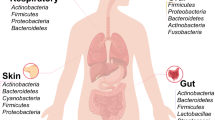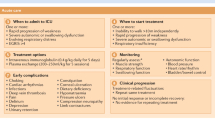Abstract
Hereditary angioedema (HAE), a condition caused by deficiency of C1 inhibitor that results in acute and painful swelling in locations that can include the face, neck, abdomen, extremities and genitals, is a potentially life-threatening disorder. Many factors may contribute to phenotype development. A case report prompted us to investigate the potential influence of early weaning on HAE gastrointestinal symptoms. Retrospective analysis was performed based on clinical data from 89 patients registered with our HAE center, including duration of breast-feeding, timing of cow's milk introduction, age at symptom onset and localization of the attacks. We did not find any relationship between these factors. Although breastfeeding is known to confer protection against numerous diseases, it showed no efficacy against the manifestations of HAE in our patient population.
This is a preview of subscription content, access via your institution
Access options
Subscribe to this journal
Receive 12 print issues and online access
$259.00 per year
only $21.58 per issue
Buy this article
- Purchase on Springer Link
- Instant access to full article PDF
Prices may be subject to local taxes which are calculated during checkout


Similar content being viewed by others
References
Agostoni A, Aygoren-Pursun E, Binkley KE, Blanch A, Bork K, Bouillet L et al. (2004). Hereditary and acquired angioedema: problems and progress: proceedings of the third C1 esterase inhibitor deficiency workshop and beyond. J Allergy Clin Immunol 114 (3 Suppl), S51–S131.
Bork K, Siedlecki K, Bosch S, Schopf RE, Kreuz W (2000). Asphyxiation by laryngeal edema in patients with hereditary angioedema. Mayo Clin Proc 75, 349–354.
Bork K, Staubach P, Eckardt AJ, Hardt J (2006). Symptoms, course, and complications of abdominal attacks in hereditary angioedema due to C1 inhibitor deficiency. Am J Gastroenterol 101, 619–627.
Bowen T, Cicardi M, Bork K, Zuraw B, Frank M, Ritchie B (2008). Hereditary angiodema: a current state-of-the-art review, VII: Canadian Hungarian 2007 International Consensus Algorithm for the Diagnosis, Therapy, and Management of Hereditary Angioedema. Ann Allergy Asthma Immunol 100 (1 Suppl 2), S30–S40.
Cugno M, Zanichelli A, Foieni F, Caccia S, Cicardi M (2009). C1-inhibitor deficiency and angioedema: molecular mechanisms and clinical progress. Trends Mol Med 15, 69–78.
Farkas H, Harmat G, Kaposi PN, Karádi I, Fekete B, Füst G et al. (2001). Ultrasonography in the diagnosis and monitoring of ascites in acute abdominal attacks of hereditary angioneurotic oedema. Eur J Gastroenterol Hepatol 13, 1225–1230.
Farkas H, Varga L, Széplaki G, Visy B, Harmat G, Bowen T (2007). Management of hereditary angioedema in pediatric patients. Pediatrics 120, e713–e722.
Montalto M, Ancarani F, Santoro L, Curigliano V, Rotondi F, Gallo A et al. (2007). Gastrointestinal involvement in a case of hereditary angioedema: could the early weaning have had a role? Am J Med Sci 334, 231–233.
Newburg DS (2005). Innate immunity and human milk. J Nutr 135, 1308–1312.
Ogundele M (2001). Role and significance of the complement system in mucosal immunity: particular reference to the human breast milk complement. Immunol Cell Biol 79, 1–10.
Author information
Authors and Affiliations
Corresponding author
Ethics declarations
Competing interests
The authors declare no conflict of interest.
Rights and permissions
About this article
Cite this article
Kelemen, Z., Visy, B., Csuka, D. et al. Abdominal symptoms of hereditary angioedema and early weaning. Eur J Clin Nutr 64, 1025–1027 (2010). https://doi.org/10.1038/ejcn.2010.134
Received:
Revised:
Accepted:
Published:
Issue Date:
DOI: https://doi.org/10.1038/ejcn.2010.134



